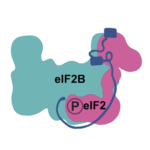Applications for the 2026 LMB PhD places are now open. Deadline is 2 December 2025.
About Us
The MRC Laboratory of Molecular Biology (LMB) is a research institute dedicated to the understanding of important biological processes at the levels of atoms, molecules, cells and organisms. In doing so, we provide knowledge needed to solve key problems in human health.
Our scientists tackle fundamental, often difficult and long-term research problems. The LMB has made revolutionary contributions to science, such as pioneering X-ray crystallography and electron cryo-microscopy (cryo-EM) to determine protein structures, the sequencing of DNA and the development of monoclonal antibodies. Twelve Nobel Prizes have been awarded for work carried out by LMB scientists.
The LMB also promotes the application and exploitation of our research findings, both by collaboration with existing companies and the founding of new ones, helping to advance medical research and the translation and application of knowledge.
The LMB provides an unsurpassed environment for both young and established researchers, with state-of-the-art facilities and a unique scientific culture. The LMB has always been very diverse, with a truly international outlook. We currently employ men and women from over 50 countries, and LMB alumni work in research organisations across the world.
Insight on Research
How is the integrated stress response terminated?

Anne Bertolotti’s group in the LMB’s Neurobiology Division has resolved a longstanding question about the termination of the ISR, a signalling pathway which is crucial for cellular homeostasis.
A new method to prepare cryo-EM samples avoids protein damage during freezing

Chris Russo’s group in the LMB’s Structural Studies Division, eliminate decades-long problem by preventing protein damage at the air–water interface with high-speed droplet vitrification.
Quick Links
Latest News
 Martin Kyte (1958 – 2025)
Martin Kyte (1958 – 2025)The LMB is deeply saddened to share that Martin Kyte, Senior Design Engineer in the Electronics Workshop, died suddenly in early November 2025. […]
 Csilla Biro appointed Head of Domestic Services
Csilla Biro appointed Head of Domestic ServicesEarlier this year, the LMB was thrilled to appoint Csilla Biro as the new Domestic Services Manager to oversee cleaning and waste disposal services across the LMB. […]
Latest Publications
- Midkine attenuates amyloid-β fibril assembly and plaque formation.
Zaman, M., et al.
Nat Struct Mol Biol 32(11): 2165-2175. (21st November 2025) - Protocol for the expression, purification, and biochemical characterization of the innate immune sensor MDA5.
Joiner, JD., Herrero Del Valle, A., Singh, R., Modis, Y.
STAR Protoc 6(4): 104218 [Epub ahead of print]. (20th November 2025) - Ultrabright chemical labeling enables rapid neural connectivity profiling in large tissue samples.
Zhong, S., Zhang, X., Gao, X., Li, Z., Huang, L., Guo, Q., Gong, R., Ren, J., Luo, M., Lin, R.
Neuron 113(22): 3741-3757.e11. (19th November 2025) - Short-term memory: How oscillatory networks preserve sensory history.
Stürner, T.
Curr Biol 35(22): R1081-R1083. (17th November 2025) - Seeding biosensor cell line that reproduces the Alzheimer tau fold.
Katsinelos, T., et al.
J Biol Chem : 110952 [Epub ahead of print]. (17th November 2025) - Termination of the integrated stress response.
De Miguel, C., Thorkelsson, SR., Fatalska, A., Hodgson, G., Wang, C., Bertolotti, A.
Science : eadw5137 [Epub ahead of print]. (13th November 2025) - Assembly, architecture and functional roles of microbial surface layers.
Isbilir, B., von Kügelgen, A., Alva, V., Bharat, TAM.
Nat Rev Microbiol [Epub ahead of print]. (13th November 2025)
See more Publications




